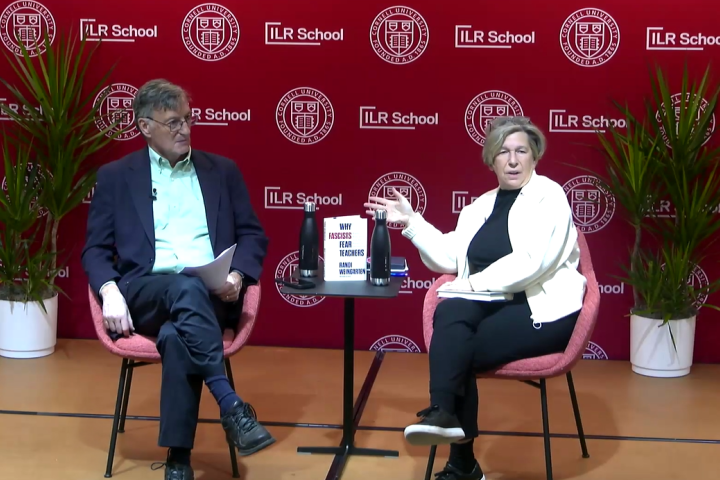
Navigating Workplace Conflict
A recent webinar on navigating workplace conflicts drew an impressive crowd of over two hundred attendees. Hosted by Nicole Morillo, President of the ILR Alumni Association, this event was part of the ILR Alumni Association’s Career Transition Initiative, and proudly partnered with Cornell Alumni Affairs and Development. This initiative aims to provide alumni with essential resources and opportunities for career development and growth.
The webinar, which focused on navigating workplace conflicts, was expertly led by Sally Klingel, Executive Director of the Scheinman Institute and Director of the Institute’s Labor-Management Relations programs, and Liz Davis-Frost, the Scheinman Institute’s Mediation and Training Extension Associate. Their presentation offered invaluable insights and practical strategies for addressing conflicts constructively.
Klingel and Davis-Frost started the session by emphasizing the importance of understanding the roots and dynamics of conflict. They explained that accurately and effectively diagnosing a conflict requires identifying its type—whether it’s about relationships, tasks, processes, or status—and evaluating its frequency and impact.
Additionally, creating a safe and respectful environment for conflict resolution is essential forestablishing clear communication norms and boundaries– from setting ground rules for discussions to prioritizing cooperation over confrontation.
The instructors also highlighted the importance of managing one’s emotions during conflicts. They noted the potential for conflicts to escalate when people react impulsively and stressed the need for personal boundaries. They reminded attendees that individuals have control over how they respond to conflicts, underlining the importance of self-control and emotional intelligence.
Navigating conflicts with deep-rooted historical tensions within an organization can be particularly challenging. Klingel and Davis-Frost emphasized the need for systemic approaches to conflict resolution that go beyond individual efforts and address the broader organizational culture.
The webinar concluded with a focus on proactive strategies for building trust and normalizing conflict as a natural part of organizational dynamics, encouraging individuals to take small steps towards addressing conflicts and modeling constructive behavior and recognizing the collectiveimpact of individual actions on shaping workplace culture.
By the end of the session, attendees left with a better understanding of the practical tools used to manage workplace conflicts more effectively. The insights from Klingel and Davis-Frost are sure to help individuals foster a more cooperative and harmonious work environment.



